Eileen is an Irish feminine given name anglicised from Eibhlín, an Irish form of the Norman French name Aveline, which is derived from the Germanic Avi, possibly meaning desire in combination with the diminutive suffix el and -in.. It is related to the English name Evelyn and the variant name Aileen. The name Eileen has been featured in classic Irish songs.

Amelia is a feminine given name. Its English form was likely influenced by the names Amalia, derived from the Germanic root amal, with meanings "vigorous, active, work", and Emilia, derived from the name of the Roman Aemilia gens. The name of the gens is likely derived from the Latin word aemulus, meaning rival. The name Amelia has been associated with both names, as well as with the name Emily, also derived from Emilia.

Priscilla is an English female given name adopted from Latin Prisca, derived from priscus. There is a theory that this biblical character was the author of the Letter to the Hebrews.
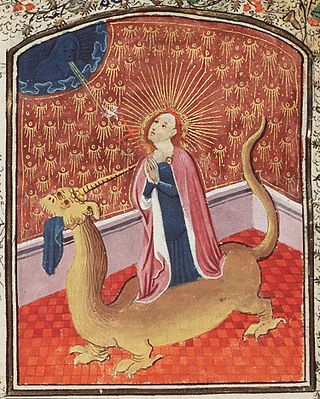
Margaret is a feminine given name, meaning "pearl". It is of Latin origin, via Ancient Greek and ultimately from Old Iranian. It has been an English name since the 11th century, and remained popular throughout the Middle Ages. It became less popular between the 16th and 18th century, but became more common again after this period, becoming the second-most popular female name in the United States in 1903. Since this time, it has become less common, but was still the ninth-most common name for women of all ages in the United States as of the 1990 census.

Darren is a masculine given name of uncertain etymological origins. Some theories state that it originated from an Anglicisation of the Irish first name Darragh or Dáire, meaning "oak tree". According to other sources, it is thought to come from the Gaelic surname meaning "great", but is also linked to a Welsh mountain named Moel Darren. It is also believed to be a variant of Darrell, which originated from the French surname D'Airelle, meaning "of Airelle". The common spelling of Darren is found in the Welsh language, meaning "edge": Black Darren and Red Darren are found on the eastern side of the Hatterrall Ridge, west of Long Town. In New Zealand, the Darran Mountains are in the south of the country.
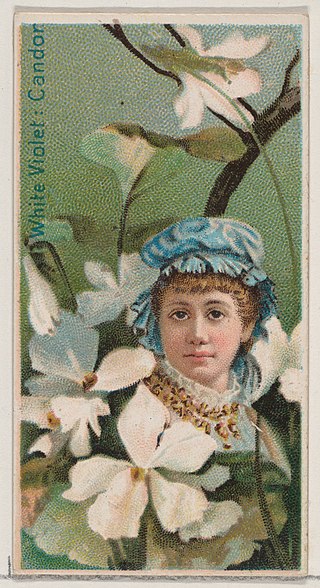
Violet is a female given name which comes from the eponymous flower. As with other such names, its popularity has varied dramatically over time. Flower names were commonly used from about 1880 through about 1910 in the United States, with usage dropping throughout the next 80 years or so; Violet was the 88th most frequent girls' given name in 1900, dropping below position 1000 by 1960. In 1990, the name appeared again in the top 1000 at position 289 and subsequently increased in popularity. It was the 20th most used name for newborn American girls in 2022. It rose rapidly in popularity for American girls born that year, one of several fashionable names that contain a letter v. In 2022, it was the 27th most popular name given to girls in Canada.

Molly is a diminutive of the feminine name Mary that, like other English diminutives in use since the Middle Ages, substituted l for r. English surnames such as Moll, Mollett, and Mollison are derived from Molly. Molly has also been used as a diminutive of Margaret and Martha since the 1700s and as an independent name since at least 1720. The name was more popular in the United States than elsewhere in the Anglosphere in the 1800s due to usage by Irish-American families and by Jewish American families who used Molly as an English version of Hebrew names such as Miriam and Malka. Its popularity with Americans was also influenced by stories about Molly Pitcher, a heroine of the American Revolutionary War.

Miranda is a feminine given name of Latin origin, meaning "worthy of admiration", deriving the feminine name from the Latin word mirandus. Although it existed as a surname prior, held by, for example, Giovanni Miranda and Juan Carreño de Miranda, William Shakespeare originated use of the name as a forename for a character in his play The Tempest. In the play, the character is addressed as “Admired Miranda! Indeed the top of admiration! Worth what’s dearest to the world!” People named their daughters after the Shakespearean character beginning in the 1700s. The name was more popular in the United States than elsewhere in the Anglosphere, possibly due to its similarity in sound to Amanda, a name also more common for American girls by the 1800s. The name declined in use after 1900 but was revived in the United Kingdom due to the popularity of the 1948 British fantasy film Miranda about a mermaid named Miranda. The name also increased in usage in the United States when the film began airing on television there in the 1950s. Other media influences also increased usage of the name through the early 2000s. The name has recently declined in usage in the United States due to negative associations with the satirical character Miranda Sings.
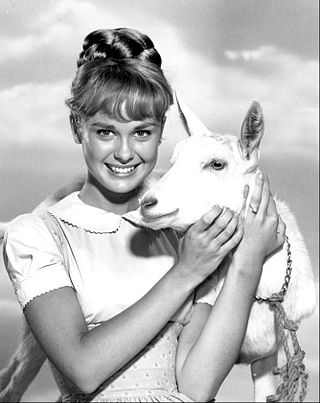
Tammy is a feminine given name. It can be a short form of the names Tamsin, Thomasina, Thomasin, or Tamar, Tamara or other names starting with Tam. Tamsin, Thomasina, and Thomasin are feminine versions of the name Thomas, a Greek form of the Aramaic name Te'oma, meaning twin. Tamara is a Russian form of the Hebrew name Tamar, which means "palm tree". In Israel "Tami" (תמי) is commonly used as an abbreviation of the original Hebrew name.
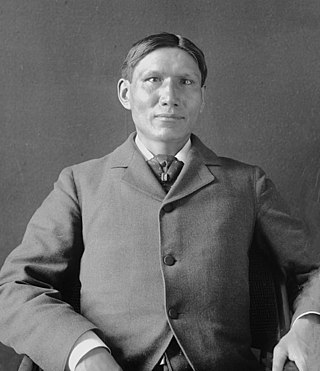
Dakota is a unisex given name derived from the name of the Native American Dakota people, or from the name of two states in the United States, North Dakota and South Dakota, which are also derived from the Dakota people indigenous to that area. The name is translated to mean "friend", "friendly" or "allies" in the Yankton-Yanktonai and Santee dialects of the Dakota language.
Annika is a feminine given name with multiple origins in different cultures. It is a Swedish diminutive for Anna, derived in the 15th century from Anneke, a Dutch and Northern Germanic diminutive of Anna. Swedish-born retired professional golfer Annika Sörenstam is a well-known bearer of the name.

Ivy is a given name or surname taken from the name of the plant. It became popular as a given name in the late 1800s along with other plant and flower names for girls. As a given name for girls, Ivy first entered the Top 200 in England and Wales in 1880, when it ranked #180, and reached the height of popularity when it was the 16th most popular name in England and Wales in 1904. It has again risen in popularity and, as of 2020, Ivy was the sixth most popular girls' name in England and Wales. It has also risen in popularity in other English speaking countries. It has ranked among the top 50 names for newborn American girls since 2021 and was the 42nd most used name for girls there in 2022. In 2022, it was the 33rd most popular name given to girls in Canada. Other botanical names are also currently fashionable, as are other names that contain the letter v.

Brandy is a given name sometimes given in reference to the alcoholic beverage or used as a feminine form of Brandon. It is also an English surname likely derived from the Germanic word element brand, meaning sword. Related surnames with the same meaning are the Italian Brandi and Brando. Usage of the name as a first name for boys has likely been a transferred use of the surname. Census records show that Brandy was in use as a masculine name in the United States, primarily for Black men, in the mid 19th century. Brandy was occasionally used as a hypocorism for women and girls for various names such as Brandina, Brenda, or Maranda, but was not widely used as a formal name for girls until the 1940s. Usage for girls might have been inspired by usage of the name Sherry, also the name of an alcoholic beverage, for girls in the 1940s. Further usage was inspired by use of the name for film characters: the attractive con woman character Brandy Kirby played by Lizabeth Scott in the 1951 film Two of a Kind, the saloon girl Brandy played by Mari Blanchard in the 1954 western Destry, and Brandy de la Court, played by Michele Girardon in the 1962 film Hatari! Spelling variant Brandi first appeared among the 1,000 most popular names for American girls in 1966. Brandy also appeared among the top 1,000 names in 1967. The name came into greater use in the Anglosphere following the release of the hit 1972 song Brandy by Looking Glass. The name peaked in usage in 1978 in the United States when it was the 37th most popular name for American girls. It has since declined in usage. Spelling variants include Brandee, Brandi, Brandie, and Brandye.
Kara is both a given name and a surname with various, unrelated origins in various cultures. As an English name, it is a spelling variant of the Italian endearment cara, meaning beloved, or the Irish word cara, meaning friend, or a hypocorism for the name Caroline. It was popularized in the 20th century by the DC Comics superheroine Kara Zor-El.

Camilla or Camila is a feminine given name. It originates as the feminine of camillus, a term for a youth serving as acolyte in the ritual of ancient Roman religion, which may be of Etruscan origin. Hypocorisms of the name include Milly, Millie, and Milla.
Sally is an English language feminine given name that originated as a hypocorism for Sarah. Young children often have difficulty in pronouncing the letter r, which resulted in nicknames like Sally that substitute the letter r for l. Other examples include Dolly for Dorothy, Hallie for Harriet, Lolly for Laura, and Molly or Polly for Mary. Sally and spelling variant Sallie have also been in use as independent names since the 1700s. The name was popularized by cultural influences in the early 20th century, including the popular Broadway musical Sally, which debuted in 1920. Actress Marilyn Miller played Sally on stage and a 1929 film. An earlier film featured Colleen Moore in the role of Sally. The popularity of performer Sally Rand also increased usage of Sally in the Anglosphere in the 1920s and 1930s. In the United States, the name was among the top 100 names for American girls until 1956. It reached the peak of its popularity in 1939, when it was the 52nd most popular names for American girls. It then declined in use, but had a brief increase in use in the late 1970s due to the influence of the American actress Sally Field. It is also a nickname for Salome and Salimeh, which are especially popular in the Eurasian country Georgia.
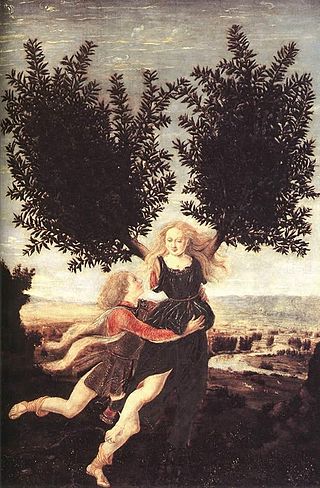
Daphne is a feminine given name of Greek origin meaning laurel. It originates from Greek mythology, where Daphne was a naiad, a variety of female nymph associated with fountains, wells, springs, streams, brooks and other bodies of freshwater. The name came into popular use in the Anglosphere in the late 1800s along with other flower, tree, and plant names that were in vogue at the time. In the United States, the name was in use for enslaved African-born women named by enslavers who used names from the Ancient Greek and Roman classics for the enslaved population in order to display their education to their contemporaries. United States census records from the 1800s show a majority of the women bearing the name in the pre-Civil War era there were Black. The name was also in rare use in the United Kingdom in the late 18th and early 19th centuries, where a working class mother and daughter in Scotland were both named Daphne. The name became fashionable for daughters born to aristocratic families in Britain in the late 1800s and early 1900s. The name increased in use in the Anglosphere after author Daphne du Maurier rose to prominence in the 1940s and 1950s. Usage also increased after the name was used for characters in novels or television productions such as the popular 1960s American television series Surfside 6 in which Diane McBain played socialite Daphne Dutton, who had her own yacht called the Daffy II. After the show first aired, the name Daphne tripled in use for newborn American girls between 1960 and 1962. In recent years, the name has increased in usage due to the aristocratic character Daphne Bridgerton on the 2020s Netflix streaming television series Bridgerton.
Nova is a given name of Latin origin meaning "new".
Hallie is an English feminine given name that originated as a hypocorism for the name Harriet. Young children often have difficulty in pronouncing the letter r, which resulted in nicknames that substitute the letter l for r. Other examples include Dolly for Dorothy, Lolly for Laura, Molly or Polly for Mary, and Sally for Sarah. The name is also occasionally regarded as a variant of Hayley.












